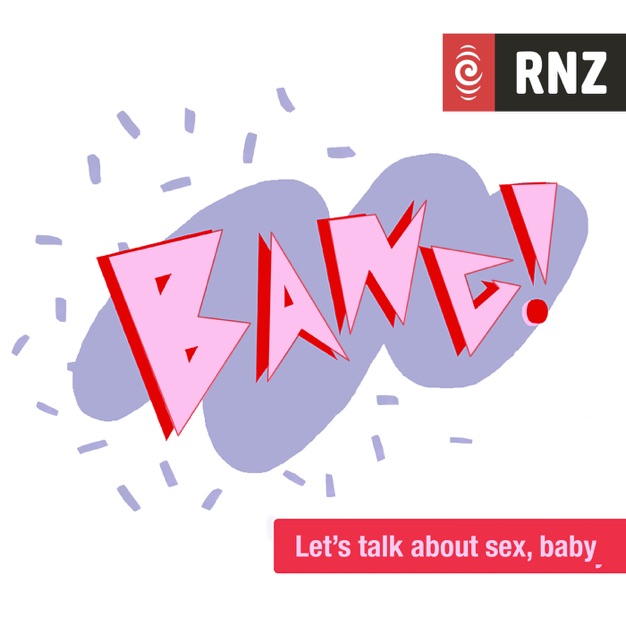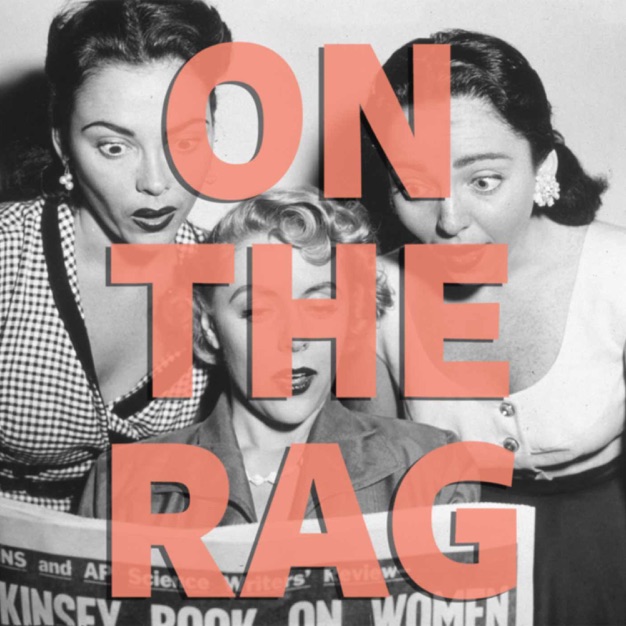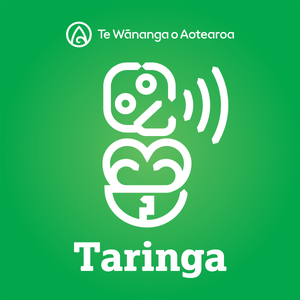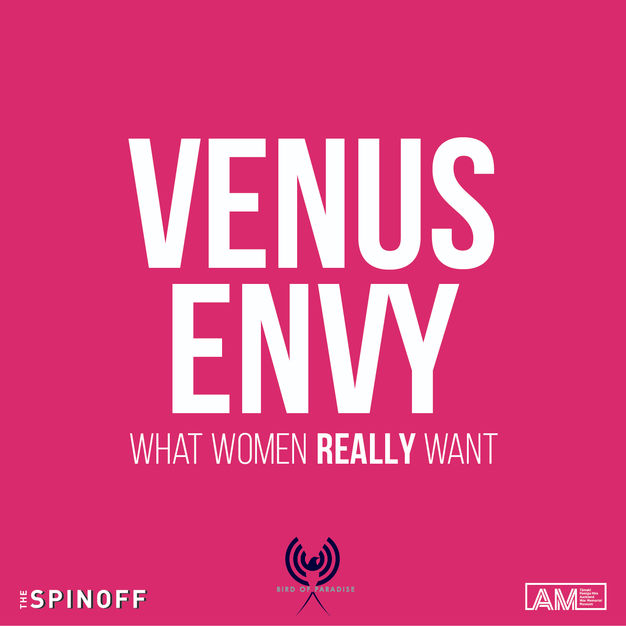
RNZ: BANG!
Using real stories told by real people, Melody Thomas leads a frank (but often entertaining) exploration of sex, sexuality and relationships.
- 42 minutes 35 secondsAccentuate the Positive
Sex positivity is the idea that all sex, provided it's healthy and explicitly consensual, is good. But what happens when a complicated theoretical idea like sex positivity gets packaged up for the mainstream? And which voices are missing from the conversation?
Sex positivity is the idea that all sex, provided it's healthy and explicitly consensual, is positive.
Philadelphia-based sex educator Melissa Fabello describes it like this:
"Many of us live in sex negative cultures where sex is demonised and stigmatised, and we're not really given space to explore our sexuality in happy and healthy ways. Sex positivity says, 'Well no, sex and sexuality can be really beautiful, amazing part of the human experience... and we should give people the space to explore what sexuality means to them'."
Sex positivity isn't a new idea, but since the early 2000s it's gone mainstream.
In BANG! we've heard dozens of stories from Kiwis who found incredible freedom in embracing sex positivity, often rejecting sex-negative upbringings to do so.
Shelley* told us about growing up in a Christian household, where virginity and purity were highly prized, and the struggles she faced as a 29-year old virgin who didn't hold those beliefs anymore.
Rosie* shared how finding the label "autochorrisexual" to describe her specific type of asexuality, freed her from the shame of not being "normal" and helped her to open up to a few close friends.
Henry* described the ways he worked through ideas about masculinity and sexuality to approach his premature ejaculation with a sense of humour and without embarrassment.
Social media has helped facilitate the mainstream acceptance of sex positivity, but the messages have become oversimplified, and in some cases the pressure to be "positive" about sex can lead to problems..
In this episode of BANG!, 18-year old Henrietta Fisher describes feeling pressure to hook up with a guy even though she wasn't sure she wanted to. The fact that her friends were trying to get the two of them alone and encouraging her to "get it girl!" made it trickier.
"It ended up happening and it made me feel terrible... Something I've noticed, especially with my female friends, it that the culture of sex positivity encourages them to go out and be promiscuous and experiment with their sexuality which is a cool thing... encourages bad and undesirable experiences for the sake of experiences," she says.
Melissa Fabello says the idea that women want to be sexually liberated has been turned into an expectation that they have to be "up for anything."…
14 April 2019, 11:00 pm - 47 minutes 21 secondsKinky Boots
What you think of as kinky and what I think of as kinky might be two different things, but it generally means behaviours and fantasies outside of the sexual 'norm'. In this episode, Melody talks with a bunch of kinky people about what gets them off and why, learns some great lessons about consent and asks the question - is it best we brought these practices out in the open, or are they best left behind closed doors?
Kink is described as activities and fantasies falling outside of the "normal" boundaries of sex and intimacy.
But what is normal? Light choking seems pretty kinky, but according to a whole lot of reports from women who have sex with men, the practice is increasingly common. Anal sex, too.
Leaving aside incidences where consent isn't explicitly obtained (which is never OK) or where someone is coerced into going along with something they don't want to (also never OK), at what point does a kinky behaviour become vanilla*?
In this episode of BANG! Melody Thomas speaks with kinky Kiwis about what they're into, how they negotiate consent, and what vanilla relationships could learn from their communities.
Poet Hadassah Grace has just released her first collection titled 'How To Take Off Your Clothes' - based in part on her experiences working in the sex industry. As well as a couple of years stripping, she worked as a "prodomme' or professional dominatrix. But while Hadassah has dominated people both for living and for fun, and enjoyed it, at heart she's "really a sub".
"My running joke is I want a feminist in the streets and a physical manifestation of the patriarchy in the sheets," she laughs.
Hadassah's fantasies largely fall under the "dominance and submission" part of the BDSM acronym (the others are bondage and discipline - the B&D - and sadism and masochism - the S&M).
And she's not alone. At the time of writing this article I was contacted by Madeleine Holden, writing for MEL Magazine in Los Angeles, to comment on a piece about men who were being asked to take on a dominant role in sex. A male friend recently confided in me how common it was to be asked by women he was having casual sex with to be choked or spanked.
In fact research suggests that fantasies of being dominated are incredibly common among both women and men.
The ways individuals interpret those fantasies depends largely on how they were socialised.
For cis, straight men who were taught to be confident and not to show vulnerability, there can be a lot of shame around fantasies of submission…
8 April 2019, 12:17 am - 35 minutes 23 secondsSex and Relationship Q&A on Nights
It's a BANG! takeover! RNZ Nights host Bryan Crump is joined in the studio by Melody Thomas and father-daughter sex advice duo Nic and Lena Beets, to answer questions from the audience and talk about common difficulties faced by people in long term relationships.
3 April 2019, 3:20 am - 41 minutes 47 secondsBANG! Live in Wellington
Recorded at Bats Theatre in Wellington as part of the NZ Fringe Festival, this is BANG! Live. Featuring Tawa mum and sex toy expert Abby Lund, Morgana Watson on menstruation in Te Ao Maori prior to colonisation plus how to use your cycle to your advantage, and father-daughter sex and relationship advice duo Nic and Lena Beets answer audience questions.
1 April 2019, 4:14 am - 50 minutes 9 secondsPretty Poly
Ethical non monogamy is nothing new - but an increasing number of people are giving it a go. Research from the US reports that 4-5% of people identify as polyamorous, and 20% have tried a version of ethical non monogamy at some point in their lives. Here in NZ, memberships in polyamory Facebook groups and on websites like nzswingers.co.nz continue to grow. Melody Thomas speaks with ethically non-monogamous kiwis about how they manage their relationships, and experts offer some advice.
In this episode of BANG!, Melody Thomas speaks with people practicing polyamory, open relationships, swinging, and "relationship anarchy". Plus Auckland-based counsellor Dee Morgan and co-author of polyamory handbook The Ethical Slut Janet W. Hardy give their advice.
In the US, it's estimated that about 4 to 5 percent of people practice polyamory, and 20% have attempted some kind of "ethical non-monogamy" in their lives.
The private NZ Polyamory Facebook group has more than 1000 members, KiwiSwingers.co.nz claims to have more than 100,000 people signed up and workshops and talks about how to open up your relationship are popping up around the country.
Anecdotally, people who have been part of ethically non-monogamous communities for decades report that practitioners are a more diverse bunch than ever before.
Janet W. Hardy, author of polyamory bible The Ethical Slut, says, "The nature of our audiences has changed... in the old days it was mostly Renaissance Fair geeks and old hippies and other people who were on the fringes, and these days it's everybody."
Rosie Morrison, 27, grew up in Timaru. She first heard about polyamory when she moved to Wellington and met a bunch of people who were doing relationships differently.
"At the start I think I was pretty taken aback like, 'whoa that's radical!' She says. "By the end I was like, 'I want in! I want in, that sounds awesome."
The word polyamory comes from two other words - poly, which is Greek for many or several, and amor, the Latin for love. Basically it's the practice of or desire for intimate relationships with more than one partner, where all partners are consenting and enthusiastically onboard.
For Rosie, who had had various short term relationships and "summer flings" but had never felt herself able to commit to more, this new way of doing things was music to her ears…
25 March 2019, 2:27 am - 29 minutes 22 secondsThe Prehistoric Origins of Modern Sexuality
In Sex At Dawn: The Prehistoric Origins of Modern Sexuality, co-authors Christopher Ryan and Cacilda Jetha take what they call the "standard narrative" of human sexual evolution and re-examine it through a different lens: suggesting that sexual exclusivity was not a part of our ancestor's expectations around relationships. Highlighting research in the fields of primatology, anthropology, evolutionary psychology and biology, Christopher Ryan tells Melody Thomas that monogamy is far from "natural" for our species, and that we'd have a much easier time with it if we went in informed.
Here's the story we've been told:
For as long as humans have existed, men and women have made a trade. He offers her protection, food, shelter and status, and in return she promises to be his "one and only", so he can be sure of his paternity when it comes to her children.
They enter into this bargain despite conflicting biological agendas. Because sperm is metabolically inexpensive, it's in his best interest to spread his seed as far and wide as possible. Because she's facing a long pregnancy, plus breastfeeding and a couple of years with a toddler - it's in her best interest to lock him in.
And there's no escaping it, because it's written into our DNA.
Christopher Ryan, author of Sex At Dawn: "If monogamy were natural to us, it'd be easy."
In Sex At Dawn: The Prehistoric Origins of Modern Sexuality, co-authors Christopher Ryan and Cacilda Jethá; take this story, which they refer to as the "standard narrative of human sexual evolution" and flip it on its head.
Analysing decades of research from the fields of primatology, anthropology, evolutionary psychology and biology, Ryan and Jethá; build a picture of human sexual evolution in which "sexual exclusivity was not really part of our ancestor's expectations around relationships."
Basically - our ancestors were much more sexually promiscuous than the 'standard narrative' has given them credit for, and this appetite for sexual variety, sharing sexual partners in much the same way as other resources were shared, served both to ensure genetically healthy offspring and to reinforce group bonds at a time when social cohesion was incredibly important.
This is how it works for bonobos - the great ape that is one of two closest extant relative to humans, along with the common chimpanzee…
19 March 2019, 9:00 pm - 52 minutes 43 secondsLet's Stay Together
We all know how it goes - two people meet, they fall in love, they decide to get married and live happily ever after. We've heard different versions of this story so many times, many of us never stop to ask if it's what we want for ourselves, or whether there are other options. In this episode, author of Sex at Dawn Christopher Ryan explains what we can learn about monogamy from our hunter-gatherer ancestors, kiwi couples share some of the ups and downs of decades together, and sex therapist Nic Beets provides valuable advice
In this episode, Kiwi couples share some of the ups and downs of decades together, sex therapist Nic Beets provides valuable advice, and Sex at Dawn co-author Christopher Ryan reveals what our hunter-gatherer ancestors can teach us about monogamy.
Here's the story we've been told:
For as long as humans have existed, men and women have made a trade. He offers her protection, food, shelter and status, and in return she promises to be his "one and only", so he can be sure of his paternity when it comes to her children.
They enter into this bargain despite conflicting biological agendas. Because sperm is metabolically inexpensive, it's in his best interest to spread his seed as far and wide as possible. Because she's facing a long pregnancy, plus breastfeeding and a couple of years with a toddler - it's in her best interest to lock him in.
And there's no escaping it because it's written into our DNA.
In Sex At Dawn: The Prehistoric Origins of Modern Sexuality, co-authors Christopher Ryan and Cacilda Jethá take this story, which they refer to as the "standard narrative of human sexual evolution", and flip it on its head.
Analysing decades of research from the fields of primatology, anthropology, evolutionary psychology and biology, Ryan and Jethá; build a picture of human sexual evolution in which "sexual exclusivity was not really part of our ancestor's expectations around relationships".
Basically - our ancestors were much more sexually promiscuous than the 'standard narrative' has given them credit for, and this appetite for sexual variety, sharing sexual partners in much the same way as other resources were shared, served both to ensure genetically healthy offspring and to reinforce group bonds at a time when social cohesion was incredibly important.
This is how it works for bonobos - the great ape that is one of two closest extant relative to humans, along with the common chimpanzee…
18 March 2019, 1:40 am - 46 minutes 42 secondsTalk About It
Research shows that putting a name to a feeling helps manage it. In this episode, three BANG! listeners talk about things they've struggled with and the steps they've taken to deal with them, plus father-daughter sex advice duo Nic and Lena Beets step in with practical advice. Today's topics: vaginismus, erectile dysfunction and period sex.
Research shows that naming feelings helps manage them.
In this episode, three BANG! listeners name the things they've struggled with and talk about the steps they've taken to deal with them. Father-daughter sex advice duo Nic and Lena Beets also offer some practical advice.
Featured below is Anna's* story, about her experience with a condition called vaginismus. Listen to the full podcast episode to hear John* talking about erectile dysfunction, and Chessie and Amy on menstruation and "period sex".
Anna was undergoing a routine pap smear when she realised something was wrong.
"I was in a lot of pain and swearing a lot at the doctor," she says. The doctor, seeing nothing wrong with Anna's vagina, continued her examination as normal despite her protestations.
After the pap smear alerted her GP to a polyp that required surgery, Anna had a follow up gynaecological exam that was equally painful. This time her doctor knew what was going on, and after a short conversation, informed Anna that she had something called vaginismus.
"She said to me 'If you ever think about having children use an epidural'... And that was pretty much the end of the conversation," says Anna.
Like any person who'd just had a medical label slapped on them with little explanation, Anna went straight home and started researching.
Described as an "involuntary contraction of muscles around the opening of the vagina in women with no abnormalities in the genital organs," vaginismus can make sexual intercourse or any activity involving vaginal penetration (including inserting a tampon) painful or impossible. People who experience it say that it feels as if a wall has appeared in the vagina. When penetration is forced (be it by a GP or when a vaginismus sufferer is trying to "push through' with a partner), it can be incredibly painful.
Primary vaginismus is when a person has never been able to enjoy pain-free vaginal penetration of any kind, and secondary vaginismus is when, like Anna, a person's sex life has been just fine and then this appears as if out of nowhere.
Vaginismus is poorly studied but is believed to occur in 1-6% of women. Sometimes there is no obvious cause, but it can be related to a belief that sex is wrong or shameful, and traumatic early childhood experiences that aren't necessarily sexual in nature. …
10 March 2019, 10:00 pm - 46 minutes 32 secondsAll Bi Myself
Didn't you know? It's 20-bi-teen! What better time to get schooled on the ins and outs of bisexuality. In this ep, a couple from season 2 return to talk about the difference between being bi and pansexual, and what it's like when everyone around them assumes they're straight. Plus queer author and columnist Emily Writes comes out in her 30s and we ask some bi and pan teens if biphobia is something they're familiar with.
There are at least as many bi and pansexual people in the world as lesbians and gay men combined, at least according to surveys of western countries. But bisexuality is poorly understood - leaving bi and pansexual people feeling that their sexuality is invisible or invalid.
In Episode 1 of the new season of BANG!, people who are "attracted to more than one gender" share their experiences, and Dr Nikki Hayfield highlights some particularly damaging, often "biphobic", stereotypes.
To the outside world, Rose and Sam* look like any other straight couple. They're in their mid 20s, affectionate and obviously really into each other. The thing is, they're not straight.
Sam identifies as pansexual and Rose is bisexual. People define each of these sexualities in different ways, but for Sam pansexuality means that he's attracted to people irrespective of gender (as in, it's not important) and for Rose bisexuality means she's attracted to people "across the spectrum of genders."
For those shouting "but bi means two!", some people still use bisexuality to mean they're into just men and women, but others have broadened the definition as a response to the increase in trans identities and in resisting binary understandings of gender.
Both Sam and Rose came out in their early 20s, both had same-sex experiences and attractions in their teens and, initially, both put them down to teenaged "confusion" or "acting out".
As Sam puts it, "Heterosexuality was expected of me and that's why it took quite a while to realise I wasn't that. It's why my parents still don't know ... I wouldn't be disowned or anything, but it would confirm that I'm the sort of black sheep, and that I'm less of a man in some way, and that doesn't feel good."
Rose grew up with an openly lesbian aunt, her family environment was welcoming of queerness. But she thought bisexuality meant 50% attracted to men and 50% attracted to women, and that the label didn't fit her because she's attracted to men more of the time.
That's until she turned 21 and stumbled across a Tumblr post. …
3 March 2019, 11:09 pm - 38 minutes 45 secondsBANG! Live in Christchurch
Live from the Bread and Circus Festival in Christchurch, Melody Thomas puts your sex and relationship questions to father-daughter sex advice duo Nic and Lena beets, plus Gemma Syme talks about coming out in her thirties, Tara from Peaches and Cream shares her better work stories and Audrey pops in with one of the best sex toy stories ever told.
Live from the Bread and Circus Festival in Christchurch, Melody Thomas puts your sex and relationship questions to father-daughter sex advice duo Nic and Lena beets, plus Gemma Syme talks about coming out in her thirties, Tara from Peaches and Cream shares her better work stories and Audrey pops in with one of the best sex toy stories ever told.
18 February 2019, 12:48 am - 2 minutesComing soon! BANG! Season 3
Hurrah! BANG! returns for Season 3 on Monday March 4th.
10 January 2019, 10:35 pm - More Episodes? Get the App
Your feedback is valuable to us. Should you encounter any bugs, glitches, lack of functionality or other problems, please email us on [email protected] or join Moon.FM Telegram Group where you can talk directly to the dev team who are happy to answer any queries.
 On The Rag
On The Rag
 Boners of The Heart Podcast
Boners of The Heart Podcast
 Taringa Podcast
Taringa Podcast
 Venus Envy
Venus Envy